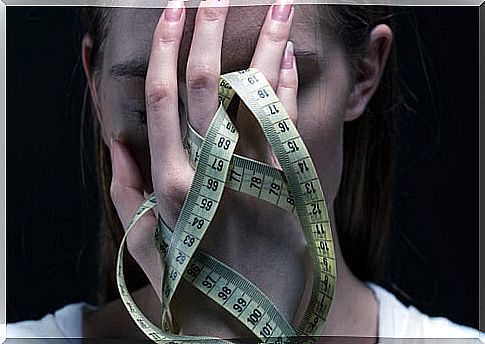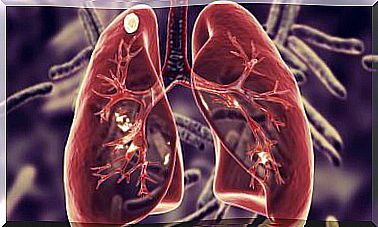9 Common Myths About Eating Disorders
Eating disorders are mental illnesses that must be treated with a specialist. Otherwise, they could cause irreparable damage to the body.

Eating disorders are becoming more and more frequent. Much of the cases are due to false beliefs about how to care for and maintain weight.
Anorexia and bulimia are the most well-known diseases at a social level, but obesity would also be in this group, as it is another very dangerous extreme that a person can reach.
These eating disorders are often characterized by individuals’ disorderly relationship with food and, in the worst cases, are accompanied by substance abuse, depression, and anxiety.
Myths about eating disorders
There are many myths around this topic that are best cleared up in order to address them. Next, you have a list of the main urban legends related to them.
1. “Eating disorders are a fad”

This is not true. Although the stereotypes of the “perfect” body imposed by society are the cause of the millions of cases of young people affected, it is by no means a fad.
According to this report from the American Psychiatric Association, eating disorders are mental illnesses that require comprehensive psychological care to be controlled.
2. “Eating disorders are adolescent diseases”
Fake. Although a large part of the patients are young, this does not mean that the disease is exclusive to this population group.
This can affect anyone, from the youngest to older ages. Many women fall into this condition in their erroneous quest to maintain a low weight.
3. “Eating disorders are not a serious disease”
Careful! They are, and a lot. In recent years, the death rate from bulimia and anorexia has increased in developed countries. This, in part, could be due to the exacerbated use of social media and its implications for consumer self-esteem.
In addition, in not so lethal cases, the person sees their quality of life diminished, since the disease affects the health of their bones and can also lead to heart complications or gastrointestinal disorders, among others.
4. “Disorders revolve around food”
Despite the fact that they are produced by inadequate eating habits, they are diseases of greater complexity with biological, psychological and sociological bases. The disorder as such can begin when the individual becomes obsessed with losing calories and weight.
5. “There is nothing better than exercise”

It is true that to take care of health and maintain weight there is nothing better than regular physical activity. However, if the person suffers from anorexia or bulimia, this statement could be quite harmful.
For exercise to be good for the body, it is essential to support it with balanced nutrition. When this is not the case, practicing it and subjecting the body to such an effort can lead to other conditions, as stated in this study by Dr. Cabetas Hernández.
Some of the most common are:
- Arthritis.
- Osteoporosis.
- Heart disease.
- Amenorrhea: absence of menstruation.
6. “To regain normal weight indicates that the patient has already healed”
Completely curing an eating disorder is not as simple as eating food until you regain normal weight. As it is a mental health problem, it is essential to support a good diet with cognitive-behavioral therapy, which aims to replace negative thoughts with those that are healthy.
Due to the complexity involved, therapy can last for months, even when a stable weight has already been reached.
7. “You can only suffer from an eating disorder”
Fake. Those who develop them can receive a combined diagnosis, that is, both at the same time: bulimia-anorexia.
Bulimia is a disorder that is distinguished by binge eating, accompanied by provoked vomiting. For its part, anorexia is characterized by causing a person to have a distorted image of their body, suppressing all their desire to eat.
8. “People with obesity do not have the will to lose weight”
Before judging, it is essential to know that obesity is as complex a type of disorder as anorexia and bulimia. Beyond willpower, its complexity has to do with cultural, environmental, biological and psychological factors that must be addressed and treated.
9. “Only women can have eating disorders”
Fake! This affects both men and women. While women are more likely to fall because of female beauty stereotypes, men are also prone to this problem.
It is important to ask for help
Do you know someone who may have an eating disorder? If so, you should seek help immediately. Although it may seem like a problem without major complications, the fact is that letting these diseases progress can be lethal.
We must put aside the beauty imposed through advertising and social networks. Each person is different, and each has its own appeal. It’s no use comparing yourself to anyone. Mistreating the body the only thing that can cause damage to the body, often irreparable.









